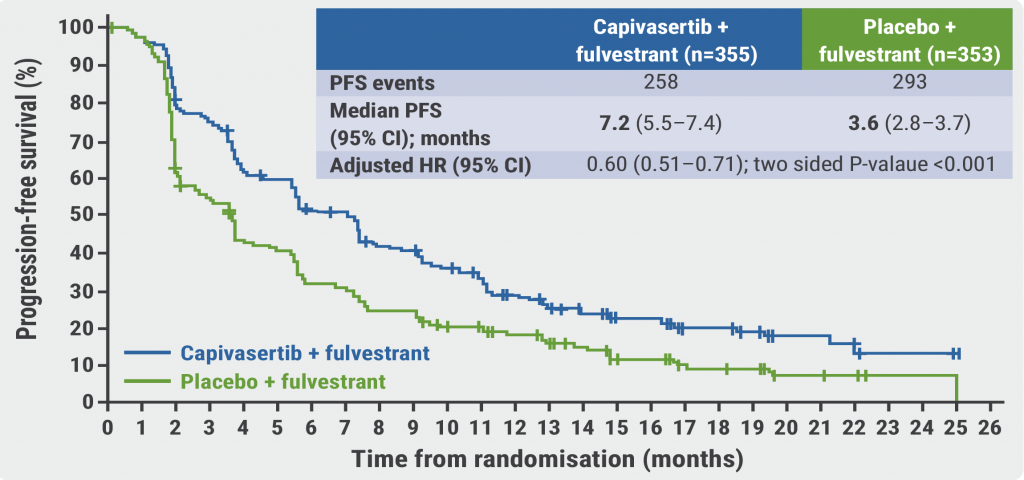About two million people are diagnosed with breast cancer worldwide each year and roughly one in five tumors is HER2 positive.
The new test involved 524 volunteers with unresectable or metastatic breast cancer who had previously been treated with trastuzumab and a taxane. Patients with brain metastases that were symptomatic or required treatment were excluded. The drugs were given intravenously every three weeks.
The rate of survival without disease progression after one year was 75.8% with trastuzumab deruxtecan and 34.1% with trastuzumab emtansine, Dr. Javier Cortes of the International Breast Cancer Center in Barcelona, Spain, and colleagues report in the New England Journal of Medicine. The hazard ratio for progression or death from any cause was 0.28 (95% CI, 0.22 to 0.37).
Survival rates were 94.1% and 85.9%, respectively. Respective overall response rates were 79.7% versus 34.2%.
However, trastuzumab deruxtecan, sold under the brand name Enhertu by Daiichi Sankyo and AstraZeneca, produced more interstitial lung disease and pneumonitis. The combined incidence of the two side effects was 10.5% with trastuzumab deruxtecan compared with 1.9% in the control group.
The interim findings were originally released in September. The two companies paid for the study, which is ongoing.
"Trastuzumab deruxtecan is an effective new treatment for patients with HER2-positive metastatic breast cancer who have been previously treated with trastuzumab and a taxane, as well as with pertuzumab when available," the researchers conclude.
SOURCE: https://bit.ly/37BGer3 The New England Journal of Medicine, online March 23, 2022.
By Reuters Staff
Posted on
Previous Article
« Single-dose liposomal amphotericin B not inferior to standard cryptococcal meningitis therapy Next Article
U.S. FDA approves Novartis therapy for prostate cancer »
« Single-dose liposomal amphotericin B not inferior to standard cryptococcal meningitis therapy Next Article
U.S. FDA approves Novartis therapy for prostate cancer »
Related Articles
November 18, 2020
Breast density helps predict cancer-related lymphedema risk

February 1, 2023
Treatment options beyond CDK4/6 inhibition
© 2024 Medicom Medical Publishers. All rights reserved. Terms and Conditions | Privacy Policy
HEAD OFFICE
Laarderhoogtweg 25
1101 EB Amsterdam
The Netherlands
T: +31 85 4012 560
E: publishers@medicom-publishers.com

